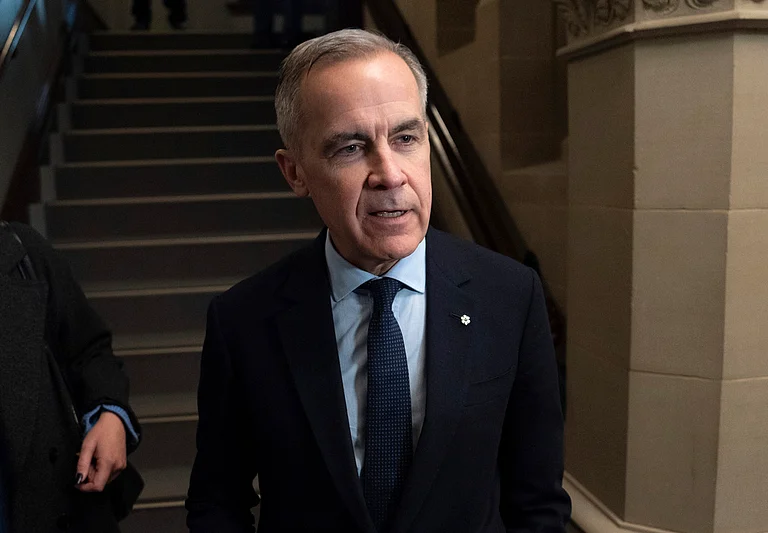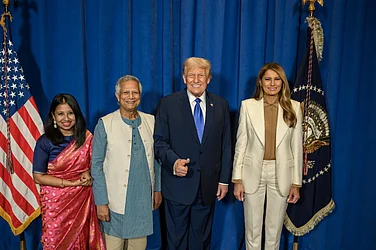Amid the growing tensions between India and Canada, the spotlight again has landed on the Five Eyes Alliance. On Monday, India and Canada expelled top diplomats after an escalation of the tensions between New Delhi and Ottawa due to the assassination of Canadian Sikh and Khalistan separatist Hardeep Singh Nijjar.
As more allegations come out against India regarding the increase in covert operations and organised crime linked to the Indian government, Canadian Prime Minister Justin Trudeau revealed that Canada has shared all information with the Five Eyes alliance regarding India's alleged role.
What Is The Five Eyes Alliance?
Five Eyes is an intelligence-sharing alliance between the United States, the United Kingdom, Canada, Australia and New Zealand.
As per the Canadian Foreign Ministry, Five Eyes is an intelligence alliance between these five countries.
"These partner countries share a broad range of intelligence with one another in one of the world's most unified multilateral arrangements," says Canada.
The agreement for intelligence sharing for the Five Eyes alliance is "governed by rule of law and robust human rights and bonded by a common language."
Five Eyes were established in the post World War-Two world between the major allied powers. The formation of this alliance lies in the post-war 1946 UKUSA agreement, which laid out a cooperative arrangement for sharing signals intelligence.
The Five Eyes alliance has two extended partnerships as well. These include - Nine Eyes with Denmark, France, the Netherlands and Norway - and Fourteen Eyes with the nine eyes members and Germany, Belgium, Italy, Spain and Sweden.
How Does Five Eyes Share Intelligence?
Some of the key foundations of the Five Eyes alliance are mutual trust and the common language of English. The five partner countries share a broad range of information with their respective intelligence agencies.
In this alliance, certain member countries are assigned regions to monitor. As revealed by a Canadian intelligence officer in 2020, the US is responsible for Russia, northern China, most of Asia and Latin America.
Australia covers southern China, Indo-China and its close neighbours like Indonesia; the UK is in charge in Africa and west of the Urals within the former Soviet Union.
New Zealand is responsible for the Western Pacific and while Canada handles the polar regions of Russia.
However, one of the major concerns of the Five Eyes, especially after the collapse of the Soviet Union has been the growth of China across Asia. Many members such as New Zealand have raised their concerns regarding the human rights situation in China, the threats against Taiwan and the suppression of the pro-democracy movement in Hong Kong.
Five Eyes and this intelligence alliance between the English-speaking countries have been criticised at times with regards to violation of privacy.
Folliwing 2013 and the release of documents by Edward Snowden, Five Eyes came under the scanner for its methods of working. The papers released by the former NSA contractor revealed the the alliance carried out a mass surveillance programme to monitor the citizens of member countries.
The alliance has also been described by Snowden as a “supranational intelligence organisation that doesn’t answer to the laws of its own countries.”
Five Eyes And The Killing Of Hardeep Singh Nijjar
Since Justin Trudeau's accusations against India surfaced in September 2023, Canada has revealed all information has been shared with the Five Eyes members. At the start of the row in 2023, five eyes members such as the US, UK and Australia has urged India to cooperate with Canada's investigation into the matter as well.
However, noting their individual ties with India, the pressure on New Delhi was reduced. Following the latest diplomatic showdown between India and Canada, Justin Trudeau stated that all the latest information and "evidence" against India has been shared with the Five Eyes countries, particularly the United States.
The emphasis on the United States comes after an assassination plot against Gurpatwant Singh Pannun, a US-based advocate and known Khalistani separatist. Pannun, along with Nijjar, is also an Indian government designated terrorist.




























